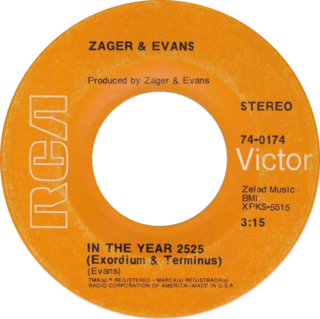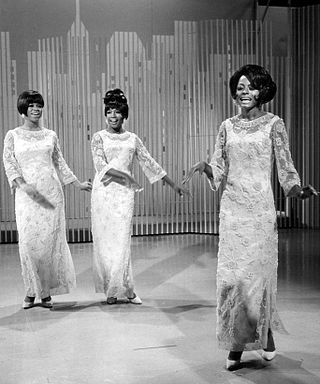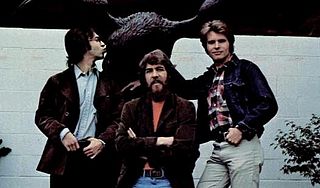
"Me and Bobby McGee" is a song written by American singer-songwriter Kris Kristofferson and originally performed by Roger Miller. Fred Foster shares the writing credit, as Kristofferson wrote the song based on a suggestion from Foster. A posthumously released version by Janis Joplin topped the Billboard Hot 100 in 1971, making the song the second posthumously released No. 1 single in U.S. chart history after "(Sittin' On) The Dock of the Bay" by Otis Redding. Gordon Lightfoot released a version that reached number 1 on the Canadian country charts in 1970. Jerry Lee Lewis released a version that was number 1 on the country charts in December 1971/January 1972 as the "B" side of "Would You Take Another Chance on Me". Billboard ranked Joplin's version as the No. 11 song for 1971.

"In the Year 2525 " is a 1969 hit song by the American pop-rock duo of Zager and Evans. It reached No. 1 on the Billboard Hot 100 for six weeks commencing July 12, 1969. It peaked at No. 1 in the UK Singles Chart for three weeks in August and September that year. The song was written and composed by Rick Evans in 1964 and released on Truth Records in 1968. It was picked up by RCA Records. Zager and Evans disbanded in 1971.

American girl group The Supremes has released 29 studio albums, four live albums, two soundtrack albums, 32 compilation albums, four box sets, 66 singles and three promotional singles. The Supremes are the most successful American group of all time, and the 26th greatest artist of all time on the US Billboard charts; with 12 number-one songs on the Billboard Hot 100 and three number-one albums on the Billboard 200. The Supremes were the first artist to accumulate five consecutive number-one singles on the US Hot 100 and the first female group to top the Billboard 200 albums chart with The Supremes A' Go-Go (1966). In 2017, Billboard ranked The Supremes as the number-one girl group of all time, publishing, 'although there have been many girl group smashes in the decades since the Supremes ruled the Billboard charts, no collective has yet to challenge their, for lack of a better word, supremacy.' In 2019, the UK Official Charts Company placed 7 Supremes songs—"You Can't Hurry Love" (16), "Baby Love" (23), "Stop! In the Name of Love" (56), "Where Did Our Love Go?" (59), "You Keep Me Hangin' On" (78), "Come See About Me" (94) and "Stoned Love" (99)—on The Official Top 100 Motown songs of the Millennium chart, which ranks Motown releases by their all-time UK downloads and streams.

"MacArthur Park" is a song written by American singer-songwriter Jimmy Webb that was recorded first in 1967 by Irish actor and singer Richard Harris. Harris's version peaked at number two on the Billboard Hot 100 chart and number four on the UK Singles Chart. "MacArthur Park" was subsequently covered by numerous artists, including a 1970 Grammy-winning version by country singer Waylon Jennings and a number one Billboard Hot 100 disco version by Donna Summer in 1978. Webb won the 1969 Grammy Award for Best Arrangement Accompanying Vocalist(s) for the Harris version.

John Lennon was a British singer-songwriter and peace activist, best known as the co-founder of the Beatles. After three experimental albums with Yoko Ono, using tape loops, interviews, musique concrète, and other avant-garde performance techniques, Lennon's solo career properly began with the 1969 single "Give Peace a Chance". Lennon then released two more singles, "Cold Turkey" (1969) and "Instant Karma!" (1970), and a live album, Live Peace in Toronto (1969), before the official break-up of the Beatles.

Canadian singer and songwriter Shania Twain has released six studio albums, three compilation albums, three remix albums, one box set, two live albums, 45 singles, 38 music videos, six promotional singles, and made six guest appearances. Twain's repertoire has sold over 34 million albums in the United States alone, placing her as the top-selling female artist in country music. Moreover, with 48 million copies shipped, she is ranked as the 26th best-selling artist overall in the US, tying with Kenny G for the spot. She is also recognized as one of the best-selling music artists in history, selling over 100 million records worldwide and thus becoming the top-selling female artist in country music ever.
Mickey Gilley was an American country music artist. His discography consists of 28 studio albums, 13 compilation albums, two live albums, 54 singles, and five music videos. 46 of his singles charted on the Billboard Hot Country Songs chart between 1968 and 1989, including 17 number one hits.

Tom Jones, real name Thomas Jones Woodward OBE, is a Welsh singer whose career has spanned five-and-a-half decades since his emergence as a vocalist in the mid-1960s, with a string of top hits, regular touring, appearances in Las Vegas (1967–2011), and career comebacks. Jones's powerful voice has been described as a "full-throated, robust baritone". His performing range has included pop, R&B, show tunes, country, dance, soul, indie, folk, disco and gospel.

The following is the discography of the American rock band the Doors. Formed in Los Angeles in 1965, the group consisted of Jim Morrison (vocals), Ray Manzarek (keyboards), John Densmore (drums), and Robby Krieger (guitar). The Doors became one of the most popular rock bands of their era. Their debut album, The Doors (1967), released by Elektra Records, charted at No. 2 on the US Billboard 200 and produced the group's most successful single, "Light My Fire". The album received several sales certifications including a four times multi-platinum from both the Recording Industry Association of America (RIAA), and from the Canadian Recording Industry Association (CRIA). The Doors' second studio album, Strange Days (1967), sold well commercially but did not reach the same level of success as the debut, and failed to produce a major hit single. It reached No. 3 on the Billboard 200 and was certified platinum in the United States and Canada. The Doors' third studio album Waiting for the Sun (1968), was commercially very successful, reaching No. 1 in the US and France, and produced their second No. 1 single, "Hello, I Love You". Waiting for the Sun was the first Doors album to chart in the United Kingdom, where it peaked inside the Top 20. The album was certified gold in that country by the British Phonographic Industry (BPI), as well as being certified gold and platinum in several other countries.
"By the Time I Get to Phoenix" is a song written by Jimmy Webb. Originally recorded by Johnny Rivers in 1965, it was reinterpreted by American country music singer Glen Campbell on his album of the same name. Released on Capitol Records in 1967, Campbell's version topped RPM's Canada Country Tracks, reached number two on Billboard's Hot Country Singles chart, and won two awards at the 10th Annual Grammys. Broadcast Music, Inc. (BMI) named it the third most performed song from 1940 to 1990. The song was ranked number 20 on BMI's Top 100 Songs of the Century. Frank Sinatra called it "the greatest torch song ever written." It was No. 450 on Rolling Stone magazine's Top 500 Songs of All Time.

The discography of American rock band Creedence Clearwater Revival, who released their first album and singles in July 1968, includes 7 studio albums, 5 live albums, 41 compilation albums, and 29 singles. The group, although only active for 4 years, has sold more than 45 million albums and singles in the United States alone, and has charted in multiple countries throughout the world.
Sean Dunphy was an Irish singer who represented Ireland at the 1967 Eurovision Song Contest, achieving second place with "If I Could Choose". He was also the first Irish singer to record in Nashville.

The discography of the Band, a rock group, consists of ten studio albums, nine live albums, nine compilation albums, and thirty-three singles, as well as two studio and two live albums in collaboration with Bob Dylan. They were active from 1964 to 1976, and from 1983 to 1999.
"She Even Woke Me Up to Say Goodbye" is a song written by Doug Gilmore and Mickey Newbury, and recorded by American country music artist Jerry Lee Lewis. Released in September 1969, it was the first single from his album She Even Woke Me Up to Say Goodbye. The song peaked at number 2 on the Billboard Hot Country Singles chart. It also reached number 1 on the RPM Country Tracks chart in Canada.
"Invitation to Your Party" is a single by American country music artist Jerry Lee Lewis. Released in July 1969, it was the first single from his album The Golden Cream of the Country. The song peaked at number 6 on the Billboard Hot Country Singles chart. It also reached number 1 on the RPM Country Tracks chart in Canada.
"Muddy Mississippi Line" is a single by American country pop artist Bobby Goldsboro. Recorded on June 24, 1969 and released on July 18, 1969, it was the first single from his album Muddy Mississippi Line.
"True Grit" is a song written by Don Black and Elmer Bernstein, and recorded by American country music artist Glen Campbell. It was released in July 1969 as the first single from his album True Grit. The song peaked at number 9 on the Billboard Hot Country Singles chart. It also reached number 1 on the RPM Country Tracks chart in Canada.
"Canadian Pacific" is a song written by Ray Griff and recorded by American country music artist George Hamilton IV. It was released in June 1969 as the first single from his album Canadian Pacific. The song, about a cross-Canada trip aboard the eponymous railway, peaked at number 25 on the Billboard Hot Country Singles chart. It also reached number 1 on the RPM Country Tracks chart in Canada.
"The Days of Sand and Shovels" is a song written by Doyle Marsh and George Reneau, and recorded by American country music artist Waylon Jennings. It was released in April 1969 as the second single from his compilation album The Best of Waylon Jennings. The song peaked at number 20 on the Billboard Hot Country Singles chart. It also reached number 1 on the RPM Country Tracks chart in Canada.

"Here We Go Again" is a country music standard written by Don Lanier and Red Steagall that first became notable as a rhythm and blues single by Ray Charles from his 1967 album Ray Charles Invites You to Listen. It was produced by Joe Adams for ABC Records/Tangerine Records. To date, this version of the song has been the biggest commercial success, spending twelve consecutive weeks on the US Billboard Hot 100 chart, peaking at number 15.










